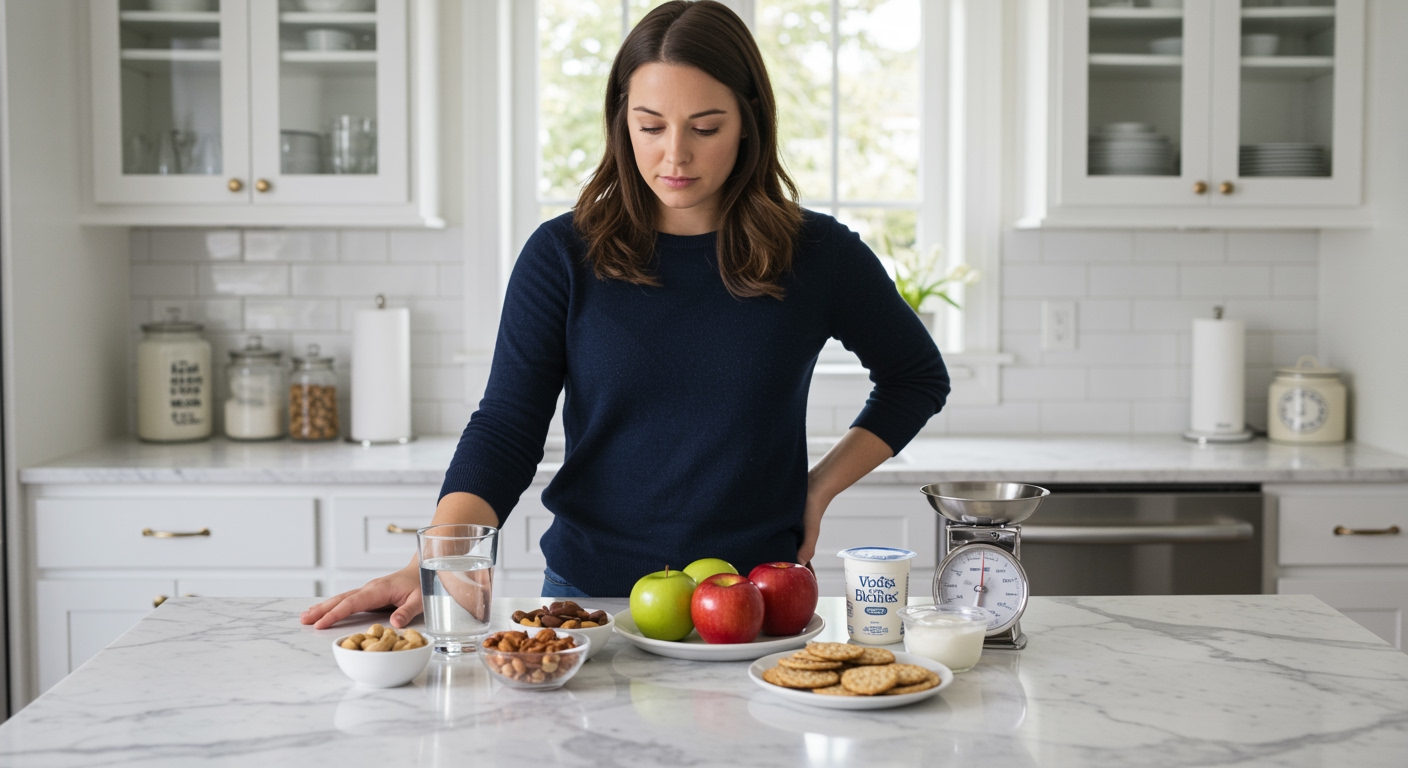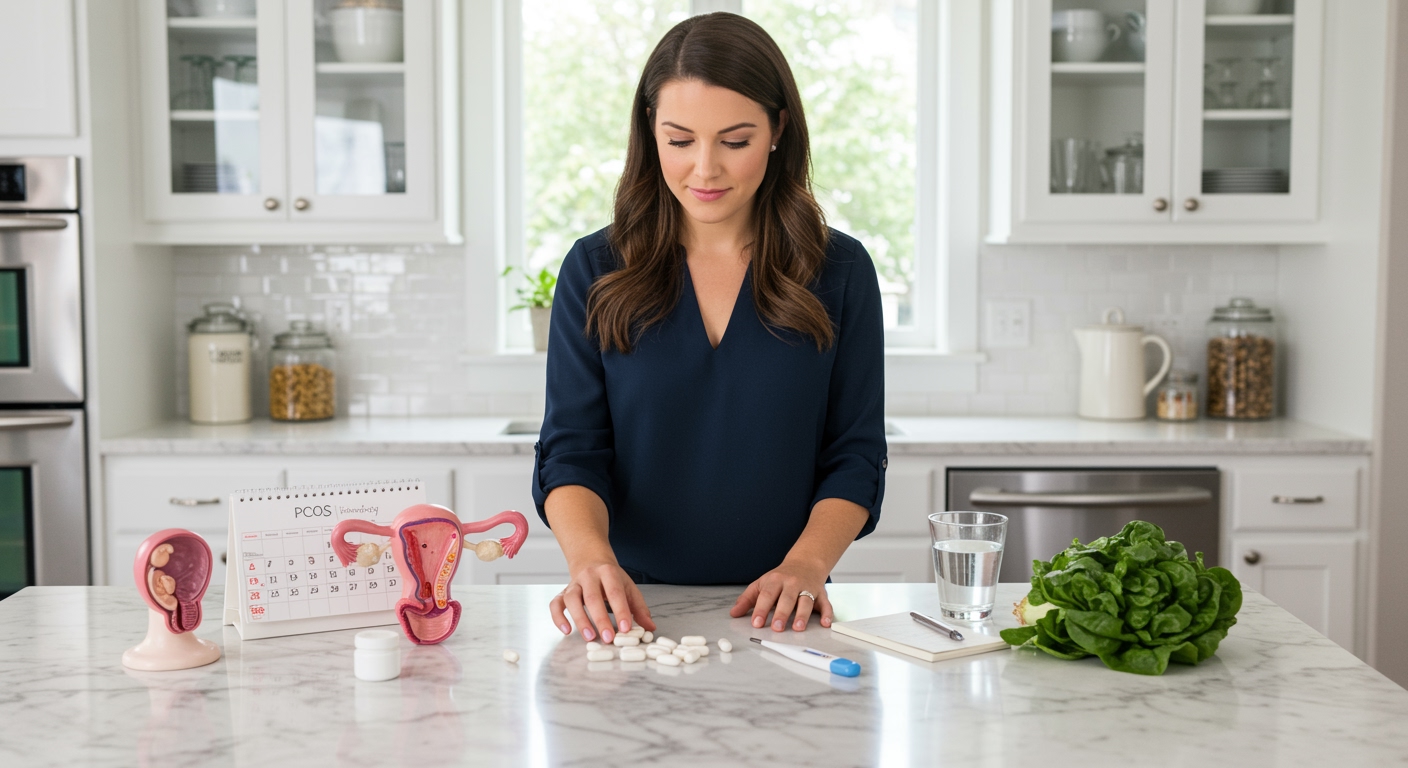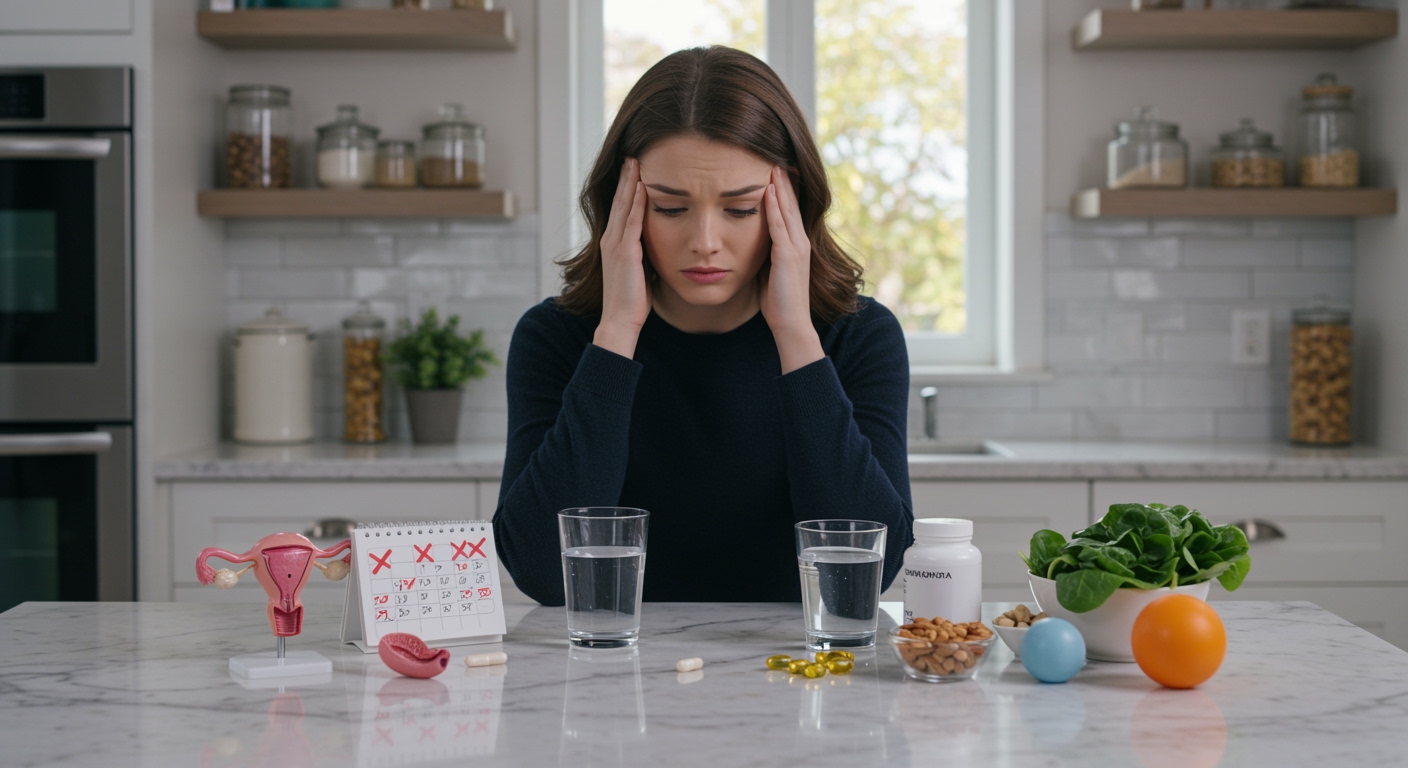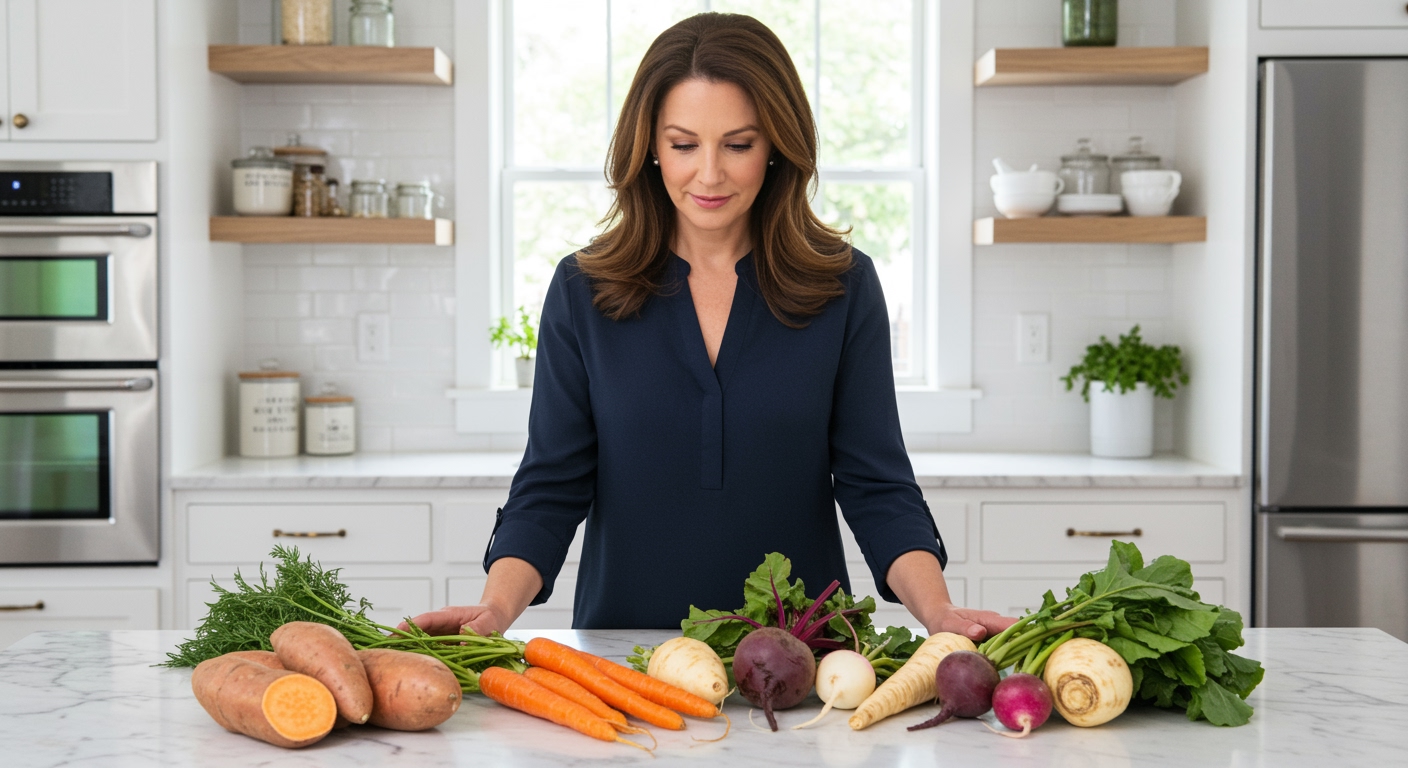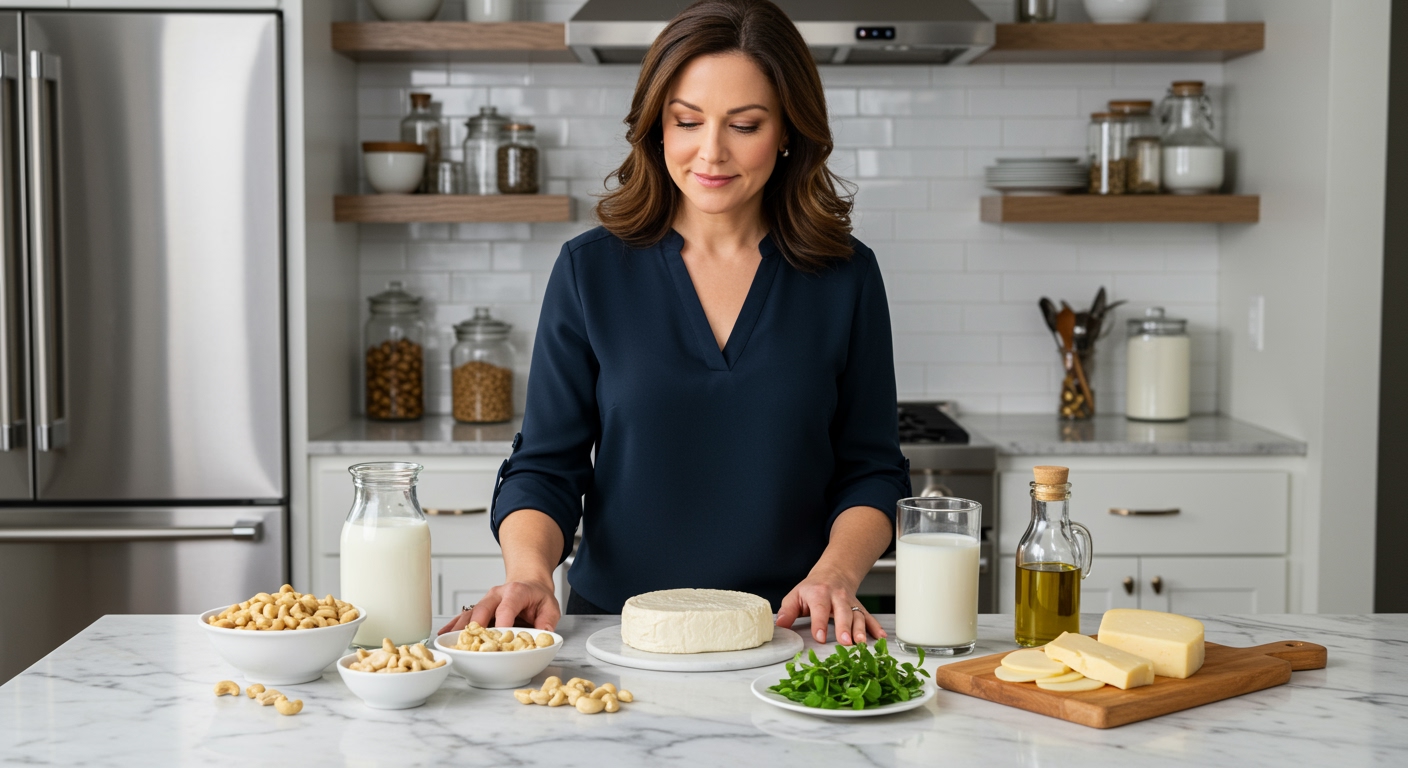✪ Key Takeaway: PCOS causes constant food cravings through insulin resistance and hormonal imbalances that disrupt hunger signals.
Introduction
You finish a full meal but feel hungry again within an hour.
This endless cycle of food cravings and constant hunger might be connected to your PCOS diagnosis in ways you never imagined.
Hi, I’m Abdur, your nutrition coach and today I’m going to explain exactly how PCOS creates these relentless food cravings and what you can do to break free from this frustrating pattern.
How Does PCOS Affect Your Hunger Hormones?
PCOS disrupts the delicate balance of hunger hormones in your body through multiple pathways.
Your body produces two key hormones that control hunger: ghrelin (the hunger hormone) and leptin (the fullness hormone).
Women with PCOS often have elevated ghrelin levels, which means your brain receives constant signals to eat more food.
At the same time, PCOS can cause leptin resistance, where your brain stops recognizing the signal that you are full.
This creates a perfect storm where you feel hungry all the time and never feel satisfied after eating.
Research shows that women with PCOS have significantly higher ghrelin levels compared to women without the condition.
✪ Fact: Women with PCOS have up to 30% higher ghrelin levels than women without the condition.
Why Does Insulin Resistance Make You Crave Food?
Insulin resistance affects up to 80% of women with PCOS and directly triggers intense food cravings.
When your cells become resistant to insulin, your body produces more insulin to force glucose into your cells.
High insulin levels cause your blood sugar to drop rapidly after meals, creating a cycle of hunger and cravings.
Your brain interprets these blood sugar drops as a signal that you need more food, especially carbohydrates and sugary foods.
This explains why you might crave bread, pasta, sweets, or other high-carb foods when you have PCOS.
The more you eat these foods, the worse your insulin resistance becomes, creating a vicious cycle of cravings and weight gain.
✪ Pro Tip: Eating protein with every meal helps slow down blood sugar spikes and reduces cravings.
What Role Do Stress Hormones Play in PCOS Cravings?
PCOS creates chronic stress in your body, leading to elevated cortisol levels that fuel food cravings.
High cortisol levels signal your body to store fat and seek out high-calorie foods for survival.
This stress response made sense thousands of years ago when food was scarce, but today it works against your health goals.
Cortisol specifically increases cravings for comfort foods high in sugar, fat, and salt.
The hormonal imbalances in PCOS also disrupt your sleep patterns, which further elevates cortisol and increases hunger.
Poor sleep quality makes your body produce more ghrelin and less leptin, amplifying the craving cycle.
✪ Note: Getting 7-8 hours of quality sleep can reduce PCOS-related food cravings by up to 25%.
Can You Break the PCOS Craving Cycle?
Yes, you can absolutely break free from constant PCOS cravings with the right nutritional strategies.
The key is stabilizing your blood sugar levels throughout the day to prevent the insulin spikes that trigger cravings.
Focus on eating balanced meals that include protein, healthy fats, and complex carbohydrates every 3-4 hours.
Protein helps slow down glucose absorption and keeps you feeling full longer.
Healthy fats like avocado, nuts, and olive oil help regulate hormone production and reduce inflammation.
Complex carbohydrates from vegetables and whole grains provide steady energy without causing blood sugar spikes.
Managing stress through regular exercise, meditation, or other relaxation techniques also helps reduce cortisol-driven cravings.
✪ Pro Tip: Drinking water before meals can reduce hunger signals and help you eat appropriate portions.
Which Foods Help Control PCOS Hunger?
Certain foods work particularly well to control hunger and cravings when you have PCOS.
High-fiber foods like vegetables, berries, and legumes slow down digestion and keep you feeling full.
Lean proteins such as chicken, fish, eggs, and Greek yogurt help stabilize blood sugar and reduce ghrelin production.
Foods rich in chromium like broccoli and whole grains can improve insulin sensitivity and reduce sugar cravings.
Cinnamon has been shown to help regulate blood sugar levels and may reduce the intensity of food cravings.
Avoiding processed foods, sugary drinks, and refined carbohydrates prevents the blood sugar rollercoaster that triggers constant hunger.
Small, frequent meals work better than three large meals for maintaining stable energy levels throughout the day.
✪ Fact: Adding 2 tablespoons of ground flaxseed to meals can reduce hunger for up to 4 hours.
The Bottom Line
PCOS absolutely causes constant food cravings through disrupted hunger hormones, insulin resistance, and elevated stress hormones.
Your cravings are not a lack of willpower but a biological response to hormonal chaos that you can learn to manage.
I would love to hear about your experience with PCOS and food cravings in the comments below, and please share any strategies that have worked for you.
References
At NutritionCrown, we use quality and credible sources to ensure our content is accurate and trustworthy. Below are the sources referenced in creating this article:
- Mayo Clinic: PCOS – Symptoms and causes
- PCOS Fertility Nutrition: Why Am I So Hungry With Polycystic Ovary Syndrome PCOS
- PMC: PCOS and Metabolic Dysfunction
- Precision Health MD: PCOS and Cravings How to Prevent Food Cravings When You Have PCOS
